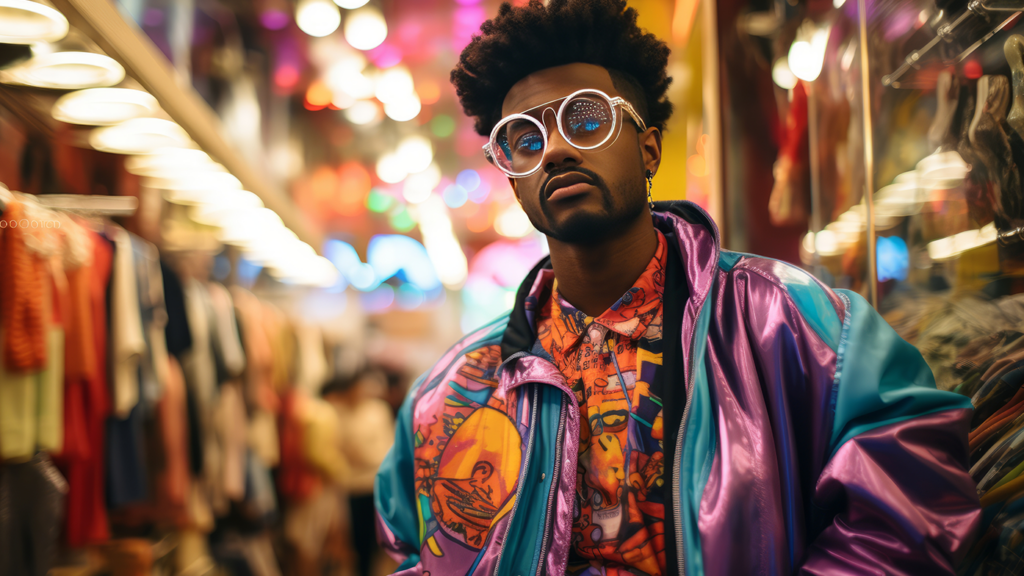This year’s hottest retail brands might strike a familiar chord. Gen-Z’s obsession with the decades before digital has revitalized 90s fashion. For the nostalgia-infused, younger generation discovering the household brands of yore has the potential to revive an aging brand straight into the 21st century. Retail trends are transforming, heavily influenced by the preferences and values of younger generations, shaping a shift towards digital engagement and experiential shopping. Next year, U.S. retail social commerce sales will total $82.82 billion, growing 23.5% year-over-year.
Here’s our roundup of the most notable brands making a splash.
Coach, one of Tapestry’s core brands, has maintained a global presence across multiple generations of consumers. Taking a page from Nike’s stealth marketing rulebook, the brand reintroduced its aesthetics to the younger Gen-Z, appealing to their love of 90s fashion, low-key flex of logos, and sustainability. The most popular collection is their customizable, upcycled handbag. Launched as a pop-up shop, Coachtopia’s collaborative lab for innovation within Coach uses fabric scraps and pre-loved Coach products to support the brand’s transition toward a circular economy. The initiative takes it one step further, offering Coach loyalists the opportunity to reinvent their favorite pieces with a Giving your BBFL (best bag for life) makeover.
Crocs come of age in 2024, and although some fashionistas have a love-hate relationship with the brand, most everyone will agree that the footbeds are comfortable and offer a practical shoe design for everyday use. The brand made a recognizable comeback in 2021 after partnering with luxury retailers on customizable Jibbitz charms, allowing fans to express themselves with as much creativity as possible. Since then, the footwear company has maintained its relevance by partnering with core brands like Hello Kitty, Vineyard Vines, nouveau designers like Diplo and Simone Rocha, and kitschy collaborations with Hidden Valley Ranch, Lisa Frank (as in the stickers), and yes, even Barbie. Aside from iconic brand partnerships, Crocs is also considering where the future lies, collaborating with gaming company Fortnite on its virtual design experience, Crocs World Tycoon.
 Anjee Solanki
Anjee Solanki
With Gen-Z’s insatiable appetite for 90s throwbacks and a conscious embrace of sustainable practices, these brands prove that reinvention and adaptation can lead to a vibrant second chapter.
With a laser focus on 90s fashion, many once-household brands are coming back to life, including Esprit. Popular overseas, the California-cool slouch knitwear firm has been strategically planning a US comeback. From setting up production in Hong Kong to establishing a headquarters in New York, the apparel brand will likely make a splash with its oversized, gender-fluid layering collection. Three years in the making, the brand is reconnecting on nostalgia for its super loyal Gen-X fans and targeting vintage second-hand Gen-Z shoppers with strategically located pop-ups. The resurgent popularity of brands like Coach, Crocs, and Esprit shows that nostalgia isn’t just a fleeting trend; it’s a powerful force driving the retail landscape. With Gen-Z’s insatiable appetite for 90s throwbacks and a conscious embrace of sustainable practices, these brands prove that reinvention and adaptation can lead to a vibrant second chapter. As more legacy brands tap into this retro-meets-modern mindset, we can expect even more exciting comebacks in the years to come. For more insight into the factors driving recent brick-and-mortar growth, the origin of its demand, and whether supply can meet it, check out our Winter Retail Report: The Future of Retail in 2024 through Store Expansion and Investment Dynamics.





 Nicole Larson
Nicole Larson